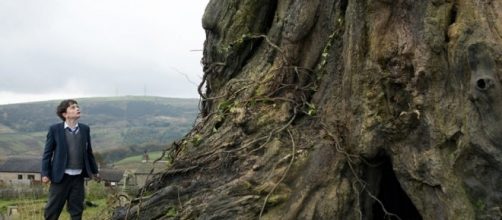It used to be that kids movies were for kids. Parents would take their children to the theatre for films like "Bambi" or "Snow White," then snooze off or zone out in the opening scenes. In the past couple of decades, however, a new breed of children's film has begun to emerge. A type of movie that, while it may hide under the guise of animation or fantasy, is just as enjoyable and relatable to the lives of adults (and perhaps even more so) as it is to the lives of their kids. There's "Toy Story," "Finding Nemo," "Zootopia," and now "A Monster Calls."
'A Monster Calls' tackles big issues with child-like ease
For a movie about a boy and his imaginary friend (what's new here?), "A Monster Calls" grapples with a host of mature concepts.
Twelve-year-old Conor is dealing with both the chronic illness of his mother and the chronic absence of his father, on top of a gaggle of other problems, like nightmares, bullies, and self-confidence. Sadly enough, things like divorce and disease are by no means foreign to kids these days, but they aren't usually the sort of ingredients children's films attempt to include in their batch. But Director J.A. Bayona doesn't shy away from the challenge.
Conor is befriended by a giant tree, who talks with the soothing gravel of film veteran Liam Neeson, and this tree uses three stories to teach him lessons. The tales involve most of the classic genre material (evil stepmothers, potions, magic), but Neeson's character is able to use them to teach Conor valuable lessons on topics ranging from faith, to judgement, to violence.
These lessons are as useful to kids as they are to adults, but Bayona's skillful construction leaves both parties able to interpret said messages in an appropriate way.
'A Monster Calls' author died before she could finish the story
The film is based on an original story conceived by British author Siobhan Doud, who was diagnosed with terminal illness, much like Conor's mother in the film. When Doud succumbed to her illness before finishing "A Monster Calls," Patrick Ness took on the role of finishing the novel, which was published in 2011. It was met with widespread critical-acclaim, and was soon adapted into the film, which was written by Ness as well.

